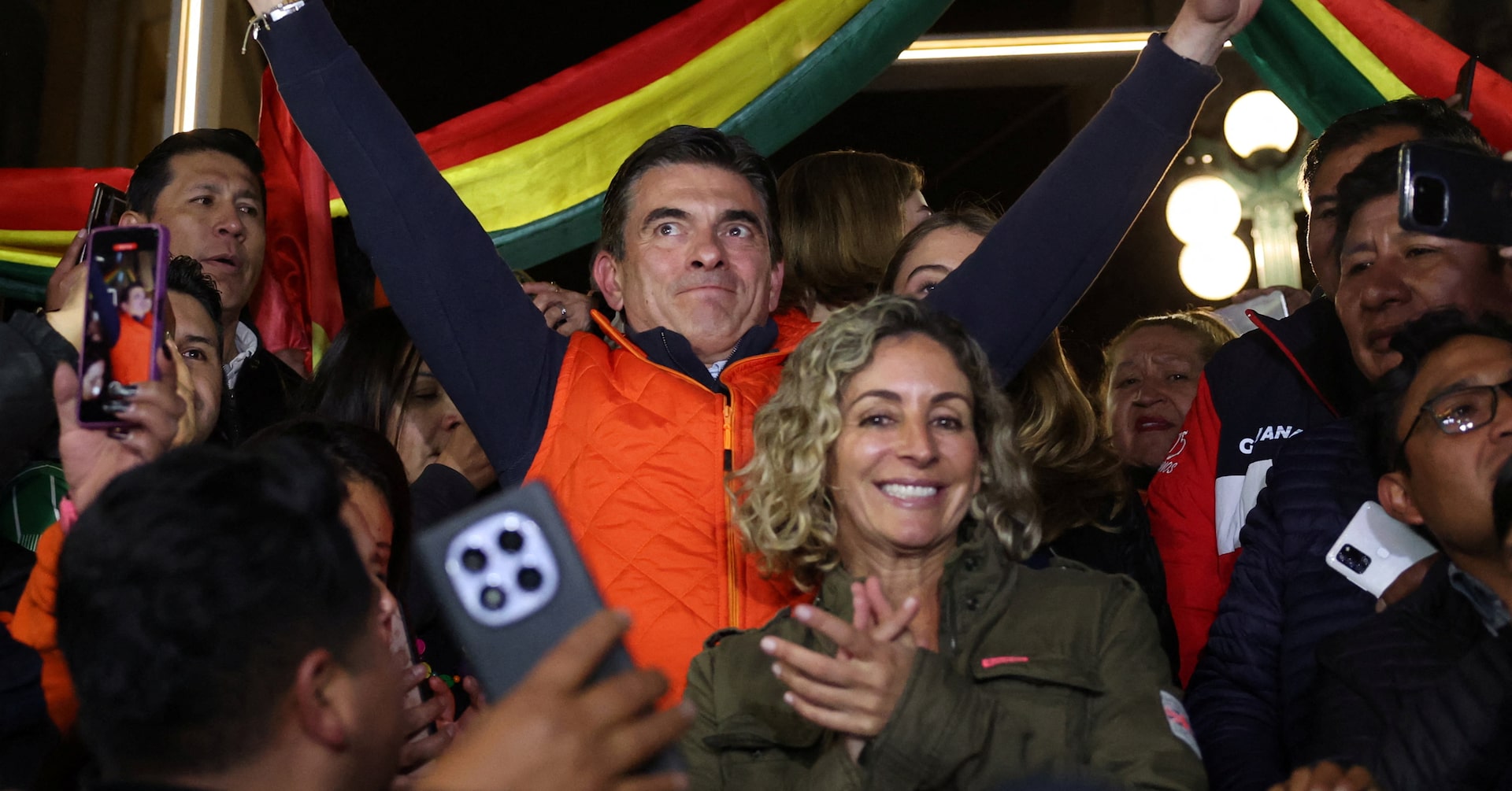On October 19, Bolivia will hold a presidential runoff between centrist Senator Rodrigo Paz and conservative former President Jorge “Tuto” Quiroga, following the failure of any candidate to secure an outright win in the August 17 first round. The election signals a notable shift in the nation’s political landscape, marked by the weakest electoral performance in two decades for the ruling Movement for Socialism (MAS) party. Paz emerged as the top vote-getter, and the final result will hinge on which contender can attract backing from supporters of eliminated candidates.
Rodrigo Paz, 57, is an economist and senator from the centrist Christian Democratic Party (PDC). As the son of former President Jaime Paz Zamora, he brings political lineage and experience, having served as a congressman and mayor of Tarija. After the initial vote, he gained the support of Samuel Doria Medina, a prominent business figure who placed third.
Paz’s campaign centers on economic modernization and governance reform. His signature proposal is a “50-50 economic model,” under which half of public funds would be managed by regional governments, decentralizing fiscal authority. He also supports closing inefficient state-owned enterprises and introducing blockchain systems to enhance transparency and combat corruption. To stabilize the national currency, he proposes establishing a stabilization fund that includes cryptocurrency assets—increasingly used by Bolivians to protect savings from inflation.
On the other side, Jorge “Tuto” Quiroga, 65, represents the Alianza Libre coalition and brings a conservative platform. He served briefly as president from 2001 to 2002 and has experience in international finance, including work with the IMF and in the mining sector. He frames his candidacy as a break from what he describes as two decades of ineffective socialist governance.
Quiroga pledges substantial reductions in public spending and overhauls of the judiciary. He has expressed admiration for Argentina’s libertarian President Javier Milei and has not ruled out seeking financial assistance from the International Monetary Fund. A distinctive element of his agenda is the introduction of a “popular property title” worth $1,500 for every adult citizen, which could be used as loan collateral. His policies emphasize private sector growth and stronger diplomatic alignment with the United States.
— news from Reuters
— News Original —
Who are Bolivia’s presidential runoff contenders promising economic overhaul?
Aug 18 (Reuters) – Bolivia will hold a presidential runoff on October 19 between centrist Senator Rodrigo Paz and conservative former President Jorge “Tuto” Quiroga, after no candidate secured a decisive victory in the August 17 first-round vote. n nThe election marks a significant political shift, following the worst electoral defeat for the ruling Movement for Socialism (MAS) party in two decades. Paz led the initial round, and the outcome will now depend on which candidate can win over the supporters of eliminated rivals. n nSign up here. n nWHO IS RODRIGO PAZ? n nRodrigo Paz, a 57-year-old economist and senator for the centrist Christian Democratic Party (PDC), is a career politician aiming to present himself as an experienced but fresh alternative. n nHe is the son of former President Jaime Paz Zamora and has previously served as a congressman and the mayor of Tarija in southern Bolivia. After the August 17 vote, he secured the endorsement of business magnate Samuel Doria Medina, who finished third in the first round. n nWHAT DOES PAZ PROMISE TO DO IF ELECTED? n nPaz ‘s platform is built on decentralizing the government and modernizing the economy. His flagship proposal is a “50-50 economic model,” which would see the central government manage only half of all public funds, with the other half going directly to regional governments. n nHe also advocates for shutting down unprofitable state-owned companies. To tackle corruption, Paz proposes implementing blockchain technology for greater transparency. n nAddressing Bolivia ‘s economic concerns, he plans to create a currency stabilization fund that would incorporate cryptocurrency assets, which have become a popular hedge against inflation in the country. n nWHO IS JORGE ‘TUTO ‘ QUIROGA? n nA well-known figure in Bolivian politics, Jorge “Tuto” Quiroga, 65, is a conservative candidate representing the Alianza Libre coalition. He briefly served as president from 2001 to 2002 and has worked as an IMF consultant and a mining executive. n nQuiroga frames his campaign as a “radical change” to reverse what he terms the “20 lost years” under socialist leadership. n nWHAT DOES QUIROGA PROMISE TO DO IF ELECTED? n nQuiroga promises deep cuts to public spending and judicial reform. He has praised the economic policies of Javier Milei, neighboring Argentina ‘s libertarian president, and has indicated he would consider a rescue package from the International Monetary Fund. n nOn foreign policy, he has promised to re-establish Bolivia ‘s severed relations with Israel. A unique proposal from his campaign is the creation of a “popular property title” valued at $1,500 for every adult Bolivian, which could be used as collateral to secure loans. His platform is seen as friendly to the private sector and aims for closer ties with the United States. n nReporting by Daniel Ramos, Monica Machicao and Lucinda Elliot; Writing by Brendan O ‘Boyle; Editing by Kate Mayberry
